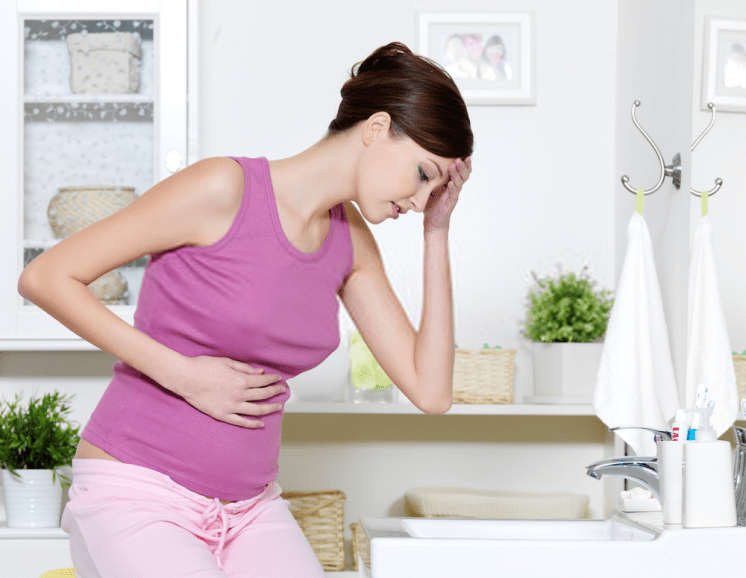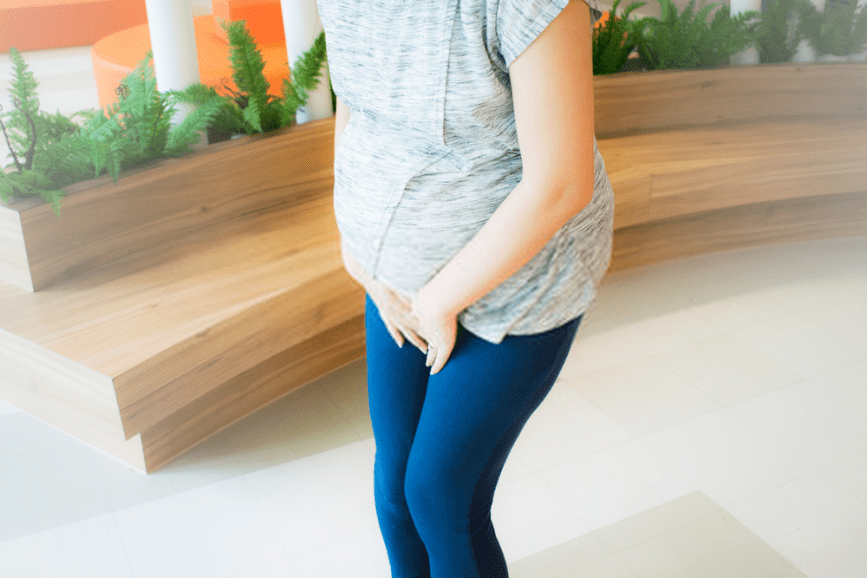Symptoms of pregnancy in the first month can vary from woman to woman. A missed period is usually the opening of the alarm. If you don’t plan to get pregnant and have logged all of your cycles, you can remember the last time you had a period.
Another symptom that may not be understood as a sign of a period is an inflamed breast. In addition to making the breasts heavy and painful, the roots can also be cleared. Fatigue can be one of the first symptoms of pregnancy in the first month: you are always tired, especially in the afternoon, and you cannot get enough sleep. You may need to nod while sitting at your desk at work, and this usually never happens to you!
Morning sickness can attack at any time of the day. Some mothers are amazing enough to be sick in the morning all day, which can be so frustrating that you often start every day without knowing how. It can start for two weeks and can take up to 14 weeks. An increase in the sense of smell is another symptom of pregnancy. It can also cause nausea. Things you once loved, like perfumes and after-shave lotions, have become so fascinating that you have no choice but to find a new home away from home. Even its slight smell can make them run to the bathroom. However, you may be lucky and not have any of these symptoms during pregnancy, or if you do, they may be mild.
After some of the first month’s symptoms that I discussed earlier, here are some others that may start a little, often urinating, which can occur within six weeks of pregnancy due to a hormone produced by the body during pregnancy. Headaches are common during the first trimester of pregnancy, especially if you have them. Pregnancy can make them worse. The reason for these problems is unknown, but experts believe it may be due to changes in hormone levels. Caffeine supply can also be another trigger for headaches.
Every woman is different and may experience various symptoms of pregnancy in the first month. In the later stages of pregnancy, some may not feel as bad, and others may suffer considerably, but generally, symptoms become more pleasant after the first 14-16 weeks. You can enjoy the rest of your pregnancy with a new level of energy, especially for the nesting phase (the great desire to decorate, sort, and clean the entire house).
What Happens During The First Month of Pregnancy?
The pregnancy is divided into three quarters depending on the symptoms of pregnancy in the first month. Each quarter lasts just over 13 weeks. The first month marked the beginning of the first quarter.
Missed Menstrual Period
As we know, Symptoms of pregnancy in the first month can vary from woman to woman. But it is the most surprising and common symptom of pregnancy. Some women may not miss the monthly cycle entirely, but they have a shorter period than ever.
Morning Sickness And Nausea
Nausea is a precursor to morning sickness. It could mean that a woman is pregnant. Morning sickness is caused by the desire to eat because the stomach is dizzy, more hormones than average, etc. Many women experience nausea up to two weeks before a scheduled monthly cycle. Eating smaller foods instead of larger ones can ease nausea. Every woman’s body needs are different, and different foods may or may not contribute to morning sickness.
Can You Get Pregnant on Your Period?

Tender Breasts
The painful symptoms of the breasts do not appear in any of the symptoms of pregnancy in the first month. Breast tenderness is usually a preliminary relationship in the future, but this tenderness, with swollen and sore breasts with a tickling sensation, may be an early indicator of pregnancy. Hormone levels increase during pregnancy. The chest plays an essential role in feeding the baby. The breast becomes more sensitive during pregnancy and prepares milk and lactation. Sometimes, the nipples darken.
Fatigue
Fatigue and tiredness can also indicate pregnancy. Pregnant women are tired all day. It is due to changes in the body and even an increase in hormone levels. Frequent breaks or naps revive your strength.

Frequent Urination
The increase in urinary incontinence continues during pregnancy. The increasing uterus size puts pressure on the bladder, and the kidneys process additional body fluids. It leads to early pregnancy symptoms that everyone will notice if you run to the bathroom frequently.

Dizziness And Fainting Or Lightheadness
The inflamed uterus strains the leg arteries, which can lower blood pressure and cause dizziness. Low blood sugar discourages you, so we recommend eating healthy, standard foods to maintain blood sugar.
Food Cravings
Food cravings are a definite sign or Symptoms of pregnancy in the first month. Pregnant women want certain foods, especially acidic and spicy foods. Taking a vitamin supplement and a capsule of pure fish oil can relieve anxiety. These cravings may be due to your body’s need for special nutrition. Sometimes, we see that women avoid certain foods that they liked before.
Sensitivity to Aromas
Pregnant women are sensitive to scents. Due to the high levels of estrogen, the pungent smell causes nausea.
Heartburn And Constipation
The heartburn problem is caused by inflammation of the uterus and its pressure against the stomach and other organs, slowing down digestion due to increased hormone levels. Therefore, an excellent prenatal supplementation of various vitamins and minerals can give the pregnant body all the nutrients necessary for the baby’s growth. The high acidity produced by the stomach lengthens the stomach and causes heartburn. Continue from the first to the ninth month.
Mood Swings And Irritability
The questions that continue to shine in a future mother’s mind about the time, career, finances, motherhood, work and delivery, mood swings, and upset behavior are natural. The symptoms of pregnancy are the result of irritating hormones. Pregnant women may experience mixed emotions, sometimes depressed later, occasionally excited, and sometimes painful, sometimes laughing and sometimes crying. The second trimester shows a decrease in the symptoms of this early pregnancy.
Higher Body Temperature
If your body temperature is above normal, this may be a sign of good news on your way. You can know whether you are pregnant if you check your body temperature for a few days. If the temperature rises for two weeks, you may be pregnant.
Low Back Pain
Almost half of all pregnant women have initial symptoms of low back pain due to an increase in maternal weight. Even during the last months of pregnancy, the bulging uterus grows as the baby grows, affecting its posture and upper body, which forces the back.
Lack of sleep at night and relaxing hormones, as well as the loosening of the joints and ligaments, also cause early pregnancy symptoms in back pain.
Spotting
Recognition or “implantation bleeding” is not a common symptom of pregnancy, so it should not be considered a prominent sign of fertility. Few women denounce it. Partial bleeding or bleeding occurs only when the zygote implants in the uterine wall. It is generally done 3 to 6 days after fertilization. Sometimes, the stitches can also appear due to a miscarriage. If so, contact a gynecologist.
Weight Gain
If you can’t afford to gain weight, your clothes shrink daily, and you feel bloated, this may be an old symptom of pregnancy, if not necessary.
If you notice any of the above signs, contact your gynecologist to see if you are pregnant. If you have shown that you are pregnant or planning to have a baby, take prenatal vitamin supplements daily for your and your baby’s health.
Can You Have a Period While Pregnant?

